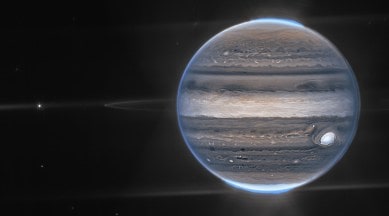Scientist find a dozen new Jupiter moons, gas giant now has most moons in solar system
Scientists have discovered 12 new Jovian moons, meaning that Jupiter now has 92 moons, making it the planet with the most moons in the solar system ahead of Saturn with 83.

Until recently, Saturn held the crown for the planet with the most moons in the solar system. But now, it seems that the largest planet in the solar system, Jupiter, is about to take that crown away from Saturn. The Minor Planet Center (MPC) has published details about the orbits for 12 previously unreported moons of Jupiter.
According to Sky & Telescope magazine, more such orbits are expected to be published soon, but the dozen new ones already bring the list of Jovian moons to 92, well ahead of Saturn’s 83 confirmed moons. All the newly-discovered moons are small and far away from Jupiter, taking more than 340 days to orbit the gas giant.
Many of these moons have a retrograde orbit, meaning that they orbit in the opposite direction of the inner moons. This hints at the fact that Jupiter probably captures these moons. Also, only five of these moons are larger than 8 kilometres. It is likely that the smaller moons were probably formed from larger objects fragmented by collisions.